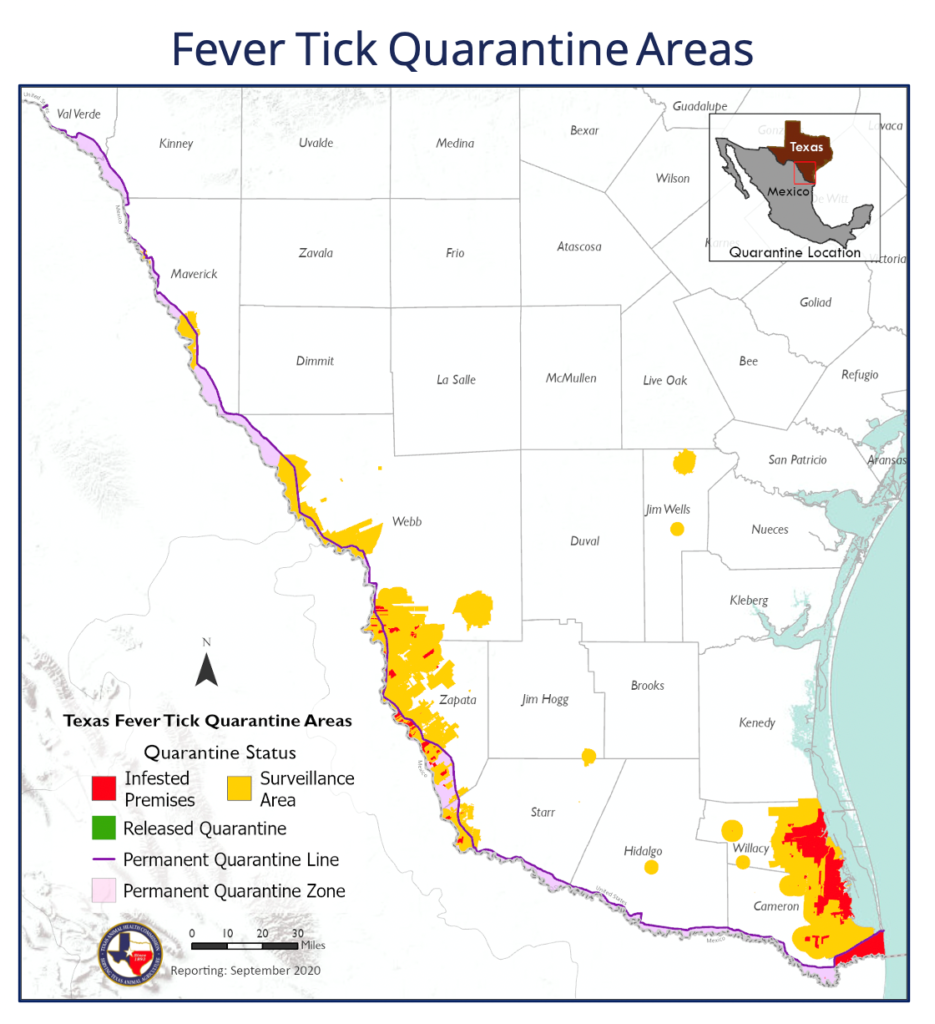Source: Texas Animal Health Commission | Oct. 6, 2020
As hunting season approaches, the Texas Animal Health Commission (TAHC) reminds hunters in South Texas that there are additional precautions required when handling white-tailed deer, nilgai antelope, black buck, axis deer, and other exotic cervids harvested on premises under fever tick quarantine.
“Hunters play a critical role in protecting our state from the further spread of fever ticks,” said Dr. Angela Lackie, TAHC assistant executive director of animal health programs. “We are asking for their help this hunting season to ensure this tick is not inadvertently transported to unaffected areas of the state when harvested deer or exotics are moved from fever tick infested areas.”
Landowners, leaseholders, or other individuals who plan to harvest, move, or capture native or exotic free-ranging cervids located on a quarantined premises must have the animals inspected and treated by a TAHC or U.S. Department of Agriculture (USDA) representative before removing the carcasses, hides, capes or animals from the premises.
Portions of Cameron, Jim Hogg, Jim Wells, Hidalgo, Maverick, Starr, Webb, Willacy and Zapata counties have established fever tick quarantines.
“The inspection and treatment process is fairly quick and simple,” said Dr. Susan Rollo, state epidemiologist. “Hunters will need to call the county TAHC or USDA representative for inspection and treatment of the hides, capes, and/or animals presented and the hunter will then be issued a permit for movement from the premises.”
To learn more about fever tick wildlife inspections, visit www.tahc.texas.gov/animal_health/feverticks-pests/TAHCBrochure_FeverTickWildlifeInspection.pdf.
For more information about fever ticks visit https://www.tahc.texas.gov/animal_health/feverticks-pests/#feverticks. To request wildlife inspections, please find TAHC and USDA contact information at https://www.tahc.texas.gov/animal_health/feverticks-pests/#hunters.

